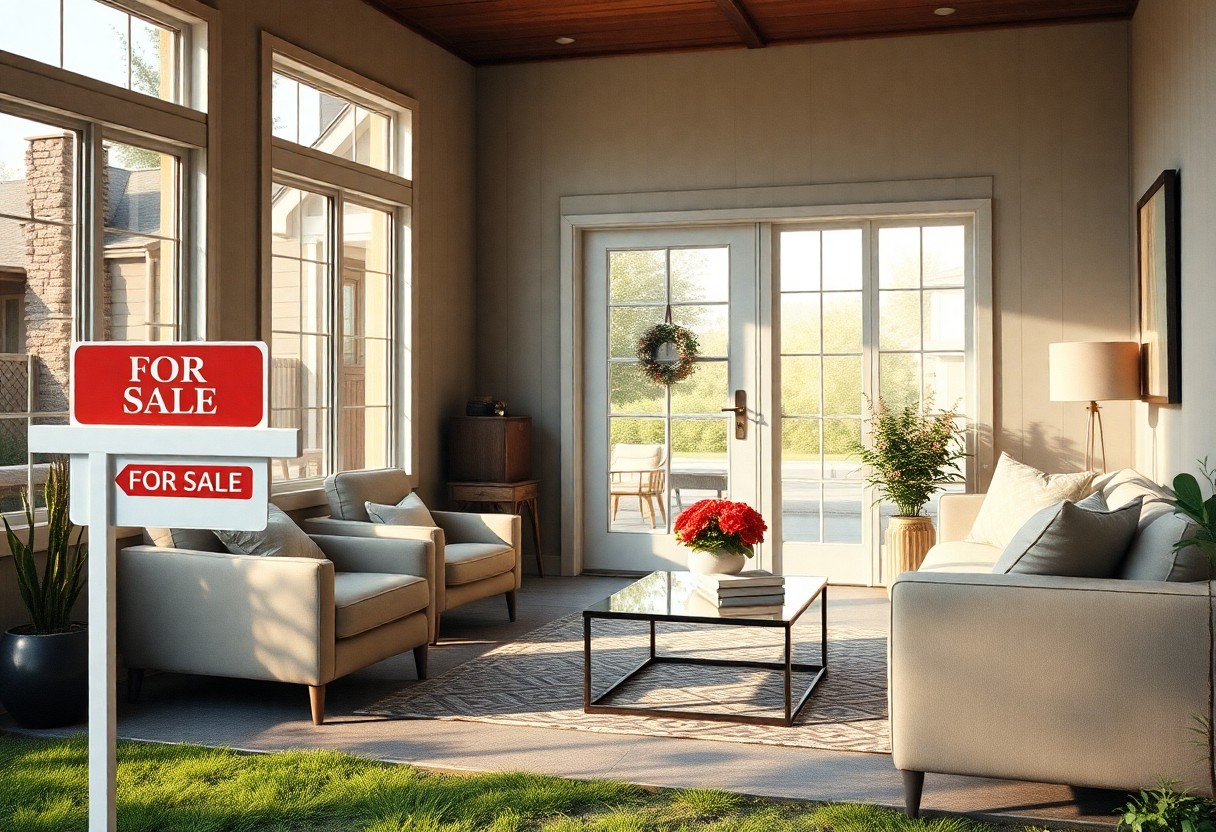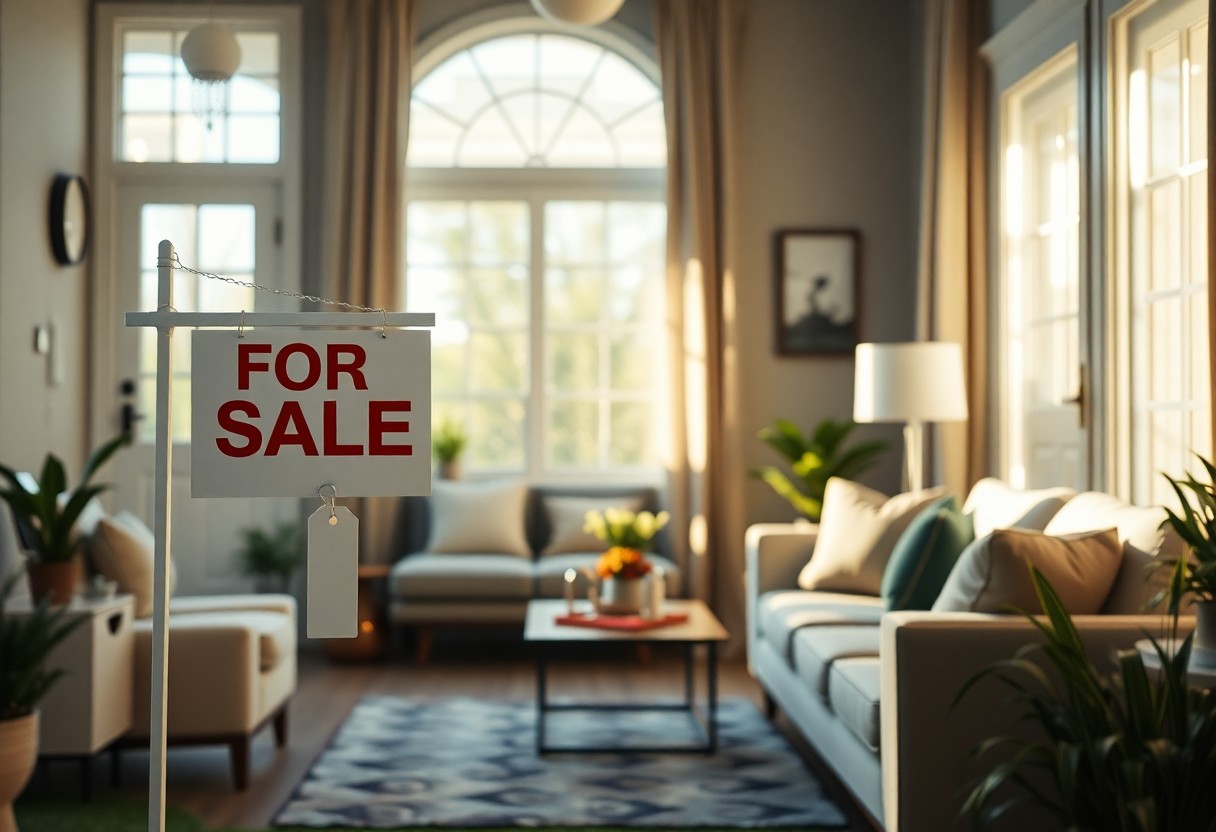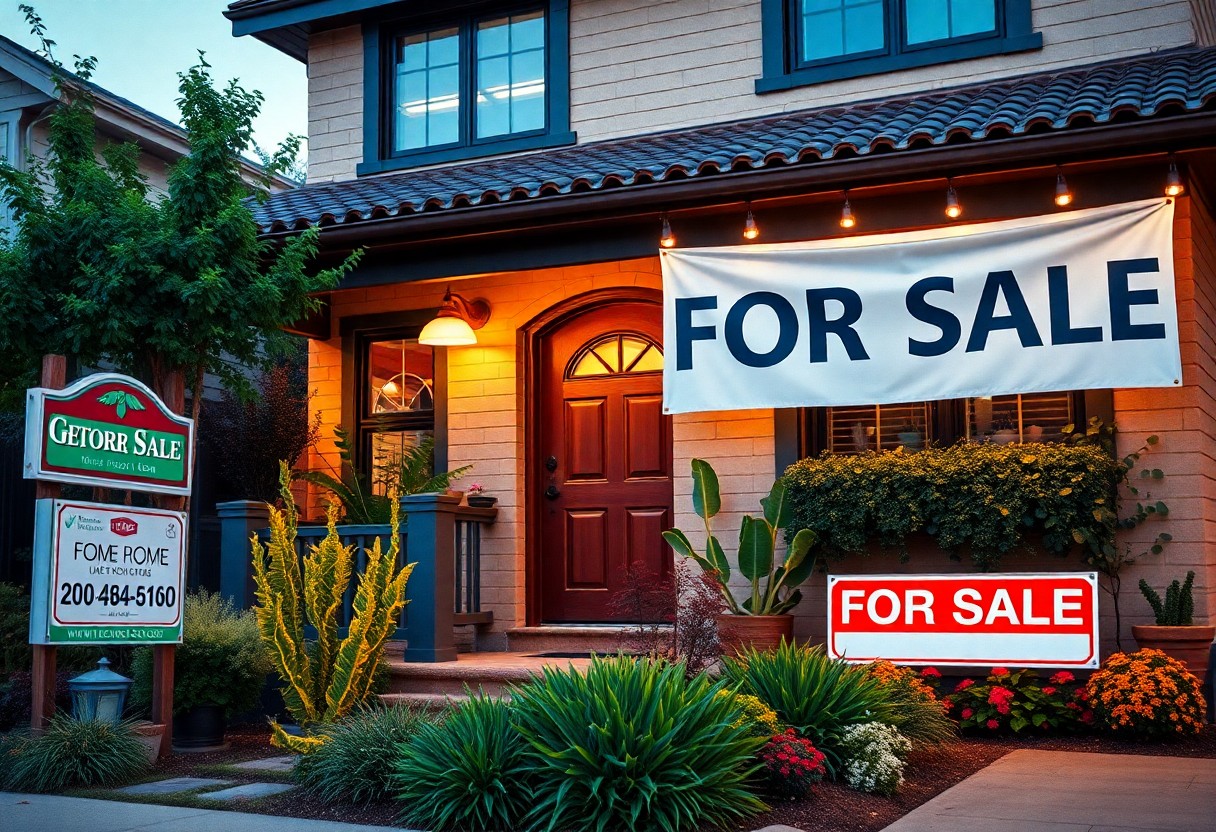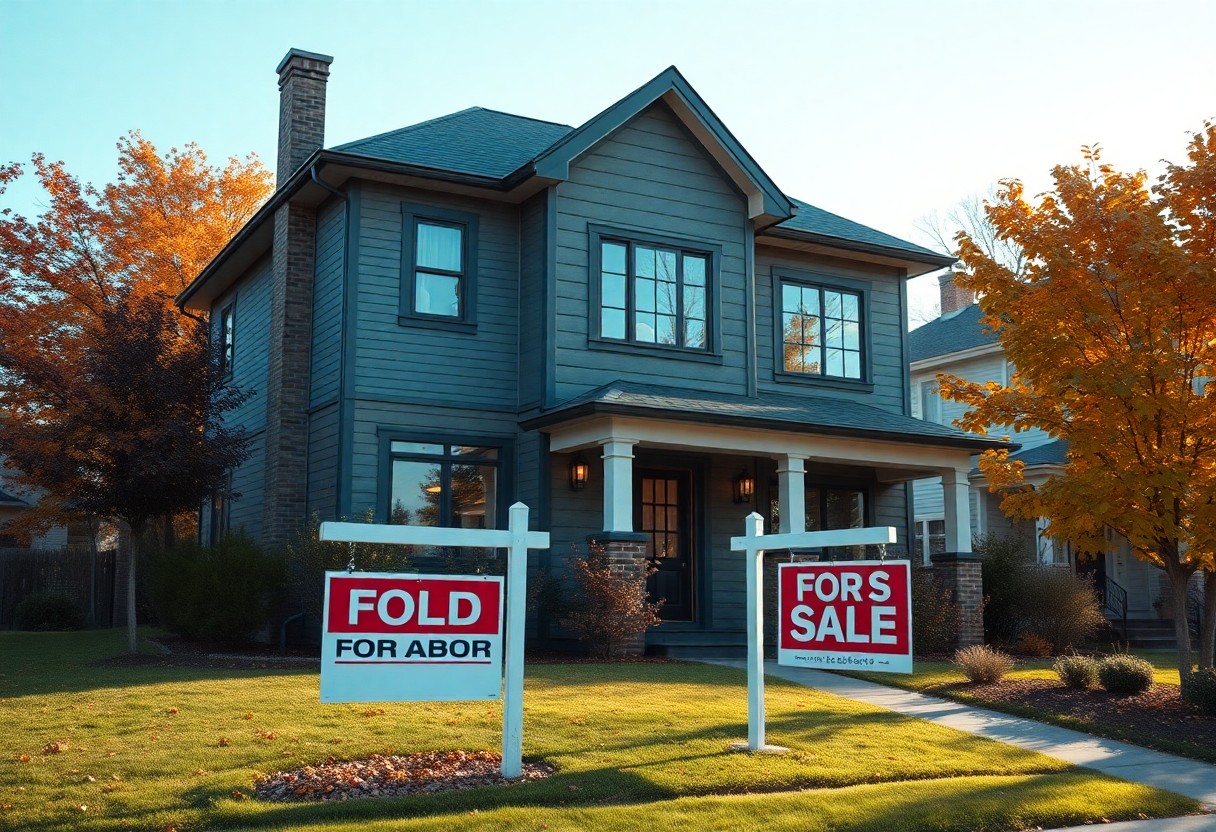Most homeowners underestimate the impact of pricing on their selling journey. Setting the right price not only attracts potential buyers but also enhances your home’s marketability. In this guide, you will learn effective strategies to determine an optimal price that reflects your property’s value while ensuring you capitalize on the current market. With the right approach, you can maximize your sale potential and achieve a satisfying return on your investment.

Key Takeaways:
- Research the local real estate market to understand pricing trends and competition.
- Consider the unique features of your home, including location, size, and amenities, to justify your asking price.
- Consult with a real estate agent for a professional opinion and a comparative market analysis.
- Be aware of pricing strategies such as setting a slightly lower price to attract more buyers.
- Evaluate the timing of the sale, as market conditions fluctuate seasonally, impacting buyer interest.
- Stay flexible and willing to adjust the price based on feedback and market response during the listing period.
- Highlight the value of your home through effective staging and marketing to justify your price point.

Understanding the Real Estate Market
Before you set your home’s price, it’s vital to grasp the dynamics of the real estate market. Different areas can experience varying levels of demand, supply, and pricing trends. Familiarizing yourself with these elements will help you make informed decisions that can greatly enhance your home sale potential.
Current Trends and Conditions
On the surface, the real estate market is influenced by factors such as interest rates, employment rates, and buyer sentiment. Trends can shift rapidly, and understanding whether it’s a buyer’s or seller’s market will equip you with the insight needed to position your home effectively.
Analyzing Local Sale Prices
Market analysis is imperative when pricing your home. You need to take a deep look into local sale prices to avoid overpricing or undervaluing your property. Look at comparable properties, often referred to as “comps,” which can help you establish a competitive price.
The analyzing of local sale prices starts with looking at homes similar to yours that have sold recently. Pay attention to features like square footage, number of bedrooms, and location, as these factors will affect pricing. Ensure you also consider the time on the market; homes that sold quickly may indicate high demand, while those that linger could suggest overpricing or less interest. Setting your price based on local trends can tremendously impact your ability to attract potential buyers, increasing your home’s sale potential.
1. Research local market trends and comparable home sales.
2. Assess your home’s unique features and upgrades thoroughly.
3. Consult with a real estate professional for insights.
4. Set a competitive price based on market analysis.
5. Consider seasonal timing for better sale opportunities.
6. Be open to adjusting price based on feedback.
Factors Influencing Home Pricing
Clearly, determining the right price for your home involves various factors that play a significant role in maximizing its sale potential. Consider the following:
- Location
- Market Demand
- Comparable Sales
- Home Features
- Condition
Thou should explore resources like The Keys to Success: Pricing Your Home to Sell for further insights.
Location and Neighborhood Dynamics
Pricing your home effectively requires a careful examination of its location and neighborhood dynamics. Buyers often seek properties in highly rated school districts, communities with low crime rates, and areas with convenient access to amenities. Additionally, proximity to public transportation can impact demand and, consequently, pricing.
Home Features and Condition
Clearly, the features and condition of your home significantly influence its market value. Well-maintained homes with desirable amenities such as open floor plans, modern kitchens, and appealing outdoor spaces attract higher bids. Conversely, outdated fixtures and unresolved maintenance issues can diminish your home’s attractiveness. Prioritizing upgrades and necessary repairs is crucial for achieving the best price.
Influencing the perception of your home’s value involves highlighting its most important features while ensuring it is in excellent condition. Pay attention to factors like curb appeal, recent renovations, and overall cleanliness. A property with a well-kept exterior and updated interiors can create a positive impression that drives buyer interest, ultimately leading to a successful sale.
How to Set the Right Price
To set the right price for your home, it’s vital to evaluate various factors, including local market trends, the condition of your property, and the pricing of comparable homes in your area. This comprehensive assessment will allow you to establish a competitive yet fair price that maximizes your sale potential.
Comparative Market Analysis
An effective way to determine your home’s value is through a comparative market analysis (CMA). A CMA involves analyzing properties similar to yours that have recently sold, are currently on the market, or were taken off the market. This table summarizes key elements you should examine:
Key Factors
| Property Features | Price |
| Size and Layout | Comparable Sale Prices |
| Location | Days on Market |
| Condition | Market Demand |
Strategies for Pricing Competitively
If you want to attract buyers, you must implement effective strategies for pricing your home competitively. This involves not only staying informed about local market conditions but also being open to adjustments based on buyer feedback and fluctuating market demands.
Competitively pricing your home requires you to balance your emotional attachment to the property with realistic market expectations. Setting a slightly lower price than the competition can generate more interest, leading to multiple offers and potentially driving up the final sale price. Additionally, staying flexible with your pricing strategy allows you to respond to changes in buyer interest and market trends, ensuring you maximize your sale potential.
Tips for Presenting Your Home
Keep your home in top shape to maximize its sale potential. Consider the following tips:
- Declutter and depersonalize your space
- Enhance curb appeal with basic landscaping
- Ensure all rooms are well-lit and inviting
- Make necessary repairs and improvements
Assume that first impressions matter, and a well-presented home will attract more buyers.
Staging Techniques to Attract Buyers
If you want to differentiate your home from others on the market, effective staging techniques are crucial. Position furniture to highlight your interior layout, use neutral colors to create a welcoming atmosphere, and incorporate appealing decor to enhance your home’s charm.
Professional Photography and Marketing
Attract buyers with stunning visuals that showcase your property’s full potential. Great photography highlights your home’s best features, while proper marketing ensures maximum exposure.
Photography plays a significant role in your home’s marketing strategy. High-quality images can significantly impact potential buyers’ interest, presenting your property at its very best. Work with a professional photographer who understands how to capture your home’s unique aspects, utilizing proper lighting and angles to showcase inviting spaces. Including drone shots and virtual tours can create an immersive experience that impresses prospective buyers. Additionally, invest in targeted online marketing campaigns to reach a broader audience and increase your chances of selling quickly.
Adjusting Your Price Over Time
Now that you have initially set your price, it’s vital to remain flexible and open to adjustments over time. The real estate market is dynamic, and shifting trends, buyer interest, and comparable sales can all impact your home’s value. Regularly reviewing your pricing strategy can help you stay competitive and maximize your sale potential.
Recognizing Market Feedback
Now, the feedback you receive from potential buyers and real estate professionals can offer valuable insights into your home’s pricing. Pay attention to showings, interest, and feedback from open houses; if you notice a lack of offers or sustained interest, it may be time to reevaluate your price point to align with market expectations.
Pricing Reductions: When and How
Assuming you receive consistent feedback indicating your home is overpriced, it’s time to consider a pricing reduction. Start by analyzing recent sales in your area, as this will help you set a new price that reflects your home’s value more accurately while remaining competitive.
It’s important to approach pricing reductions strategically to maintain buyer interest. Set realistic and attractive percentages for your price drop, typically around 3% to 5% for an initial reduction. Avoid making drastic cuts too early, as they may imply desperation and devalue your property. Instead, monitor the market’s response carefully and be open to further adjusting your price if needed, ensuring you strike the right balance between competitiveness and value.
How to Communicate Value
Once again, it’s important to effectively communicate the value of your home to attract potential buyers. By presenting the right information and focusing on your property’s strengths, you can create a desire to view and purchase your home. Tailoring your messaging to highlight the benefits of your home sets you apart from the competition.
Creating a Compelling Listing Description
On your listing, words matter. Craft a captivating description that stirs curiosity and conveys the unique aspects of your home. Instead of just listing features, tell a story about the lifestyle and experiences that await potential buyers, while keeping your audience engaged.
Highlighting Unique Selling Points
Assuming your home has special features, you need to emphasize what sets it apart from others on the market. Focus on unique aspects such as architectural details, scenic views, or eco-friendly upgrades that make your property highly attractive to buyers.
Selling your home means showcasing its unique selling points effectively. Highlight aspects such as an inviting backyard retreat, energy-efficient systems, or a renovated kitchen with high-end appliances. These details not only draw attention but also create an emotional connection for buyers. When you emphasize these key features, they become the selling points that can distinguish your home in a competitive market, ultimately enhancing your sale potential.
Conclusion
Now that you have the knowledge to set the right price for your home, you can maximize its sale potential. By conducting thorough market research, understanding local trends, and considering the unique features of your property, you position yourself for a successful transaction. Keep your pricing strategy flexible, and don’t hesitate to seek professional advice if needed. With the right approach, you can attract motivated buyers and achieve the best possible return on your investment.
FAQ
Q: Why is it important to set the right price when selling my home?
A: Setting the appropriate price is imperative as it can attract more potential buyers and reduce the time your home sits on the market. If priced too high, your home may scare off buyers; if priced too low, you could miss out on profit. A well-researched price can help make your property stand out and facilitate a quicker sale.
Q: How do I determine the market value of my home?
A: To determine the market value, consider several factors, including recent sales of similar homes in your neighborhood, the condition of your home, unique features it offers, and current market trends. Working with a real estate agent can also provide insight through a comparative market analysis (CMA) that compares your home with others in the area.
Q: What role does staging play in pricing my home?
A: Staging can significantly impact a buyer’s perception of your home, making it look more appealing and potentially justifying a higher price. A well-staged home highlights its best features and provides a welcoming atmosphere that can lead to a quicker sale and sometimes even a bidding war that raises the sale price.
Q: Should I consult a real estate agent about pricing?
A: Yes, consulting a real estate agent can be beneficial as they have market expertise and can provide valuable insights and data. Agents can help you evaluate comparable listings, recent sales, and market conditions to suggest a price that reflects fair market value while maximizing your selling potential.
Q: How can I adjust my pricing strategy if my home isn’t selling?
A: If your home isn’t receiving offers or showing interest, consider analyzing feedback from potential buyers and your real estate agent. You might need to reevaluate the listing price based on the current market dynamics or enhance your home’s appeal through minor renovations or staging. Adjusting your marketing approach can also help generate more interest.
Q: Are there seasonal trends I should consider when setting my price?
A: Yes, real estate markets often experience seasonal fluctuations. Typically, spring and summer are more favorable for home sales as the weather is pleasant, and families prefer moving during school breaks. Setting the price in alignment with these trends may yield better results, maximizing the potential for a quicker and more profitable sale.
Q: How can I use online tools to assist in pricing my home?
A: Online tools such as home value estimators and real estate comparison websites can provide a rough idea of what your home may be worth based on algorithmic assessments. However, these tools should be used as a starting point; they can’t replace the personalized analysis that an experienced real estate agent can provide, which factors in the unique aspects of your home and local market conditions.



